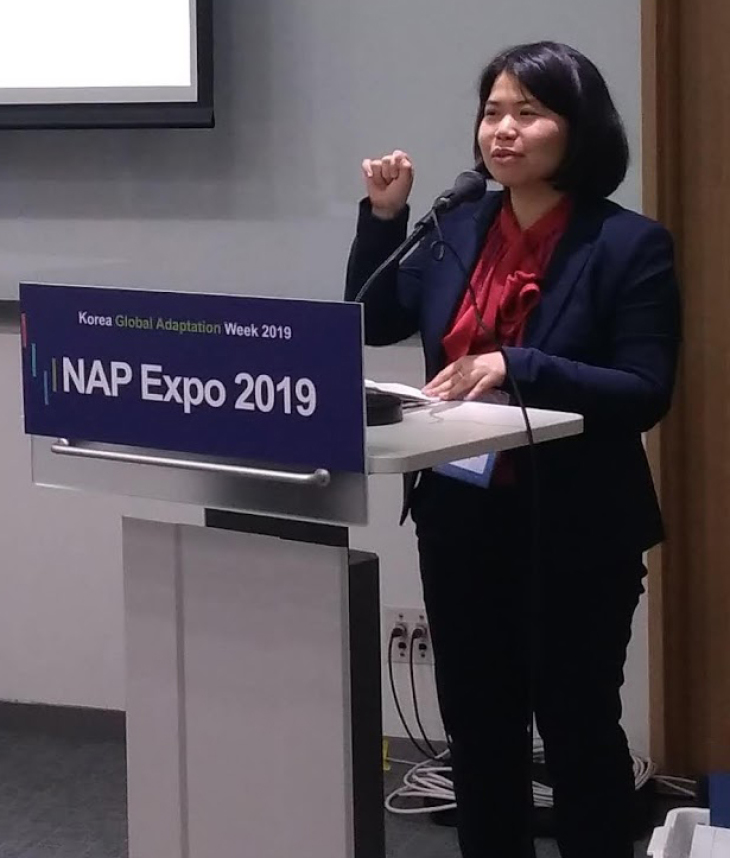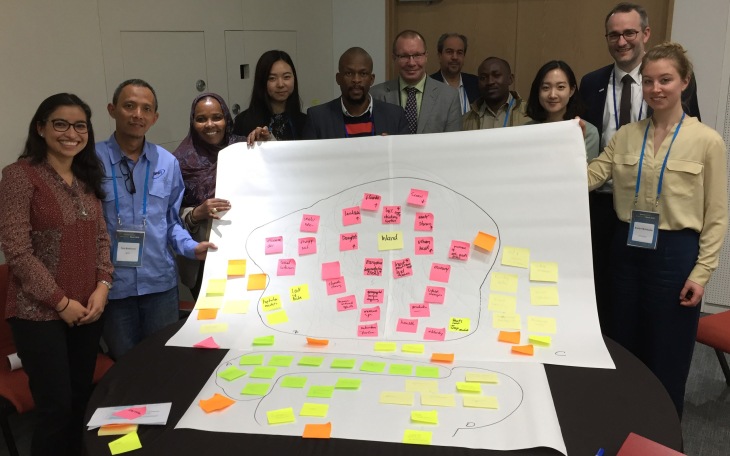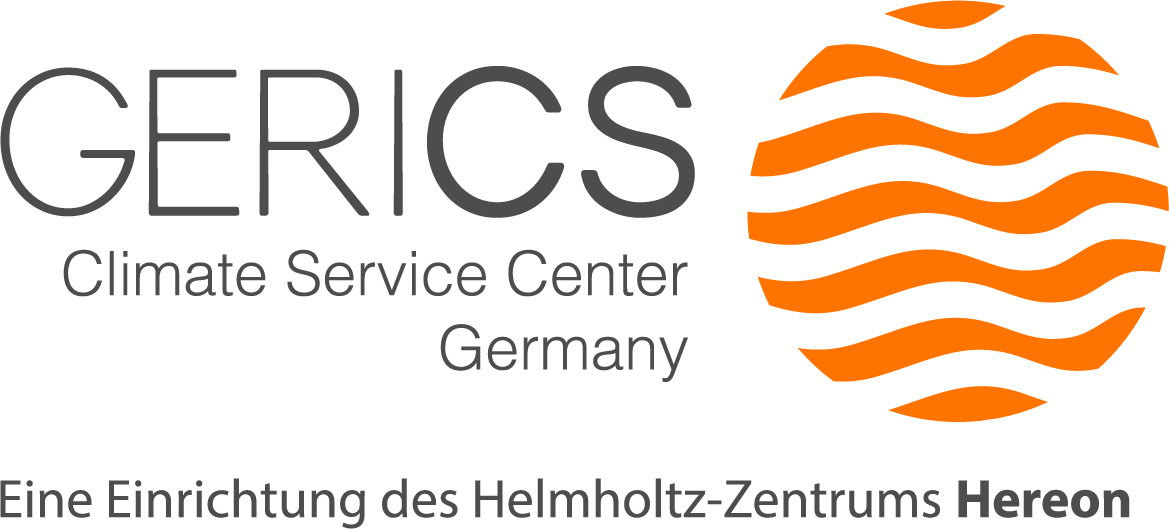Participatory methods for integrative modelling session at UNFCCC NAP Expo 2019
GERICS led session on "Mediated modelling: using systems dynamics to build collaborative tools"
At UNFCCC NAP Expo in Songdo, Korea, Jo-Ting Huang-Lachmann and Tania Guillén Bolaños led a session on ‘Mediated modelling: using systems dynamics to build collaborative tools’ based on the method developed by Dr. María Máñez Costa.

GERICS scientist Jo-Ting Huang-Lachmann explaining the method © GERICS
The team has implemented and carried out a participatory modelling approach, which could serve as basis and a useful method for the co-development of a National Adaptation Plan (NAP) process with stakeholders in this hands-on session.
The participatory modelling approach engages stakeholders in the modelling by integrating their perception and perspective on the NAP process considering the four elements
(A) Lay the groundwork and address gaps
(B) Preparatory elements to identify vulnerabilities and risks
(C) Implementation strategies and
(D) Reporting, monitoring and review.
The participants from all over the world joined the hands-on activity and provided input to identify gaps and needs in the countries’ climate change adaptation plans and actions, institutional support to the adaptation and monitoring and evaluation related to the topics of the two chosen groups, “small islands” and “inland areas”.
Participants provided inputs for the identification of gaps. Additionally, participants showed interest in the methodology and its implementation guidelines as a support tool for their home countries or institutions. This participatory modelling approach developed by GERICS provided to the participants the entry point to engage with stakeholders, to co-design and to co-develop within the NAP process and to use a science-based systemic approach.

GERICS scientist Tania Guillén Bolaños (left) and the participants presenting the working groups' results. © GERICS
GERICS looks forward to collaborating with more countries with our participatory approach!
further information on GERICS decision support and governance tools
